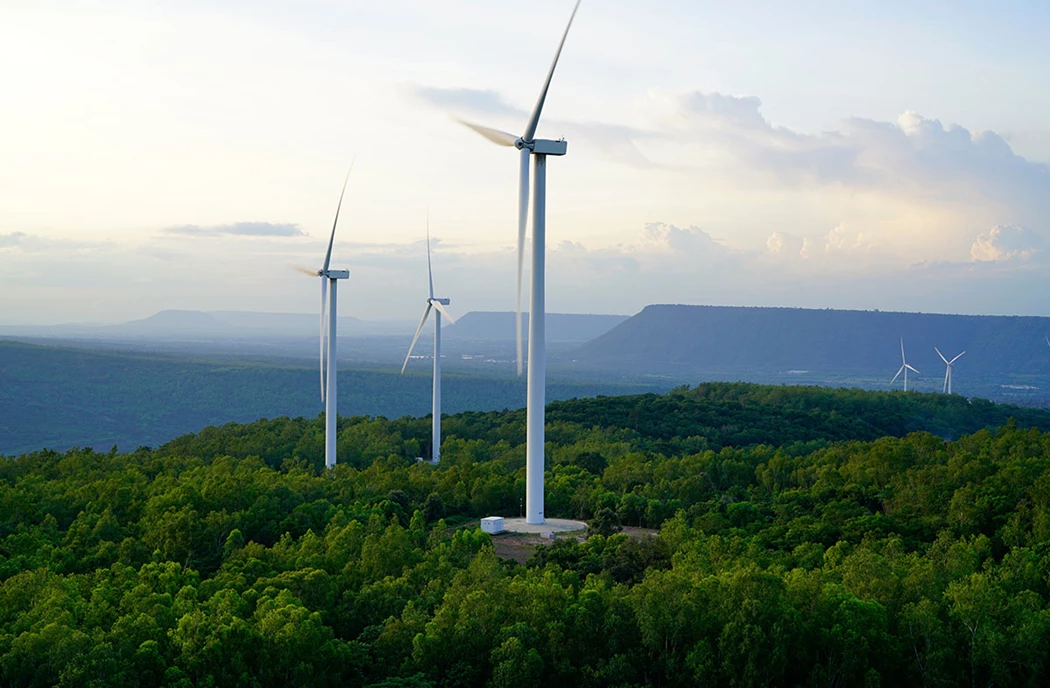South Africa’s EV Dream Threatens $8.5 Billion in Climate Aid
(Bloomberg) -- South Africa wants to spend billions of dollars fostering an electric vehicle industry, complicating efforts to finalize an $8.5 billion climate aid package before next month’s United Nations climate summit.
The landmark funding plan unveiled at last year’s climate conference in Glasgow was meant to help South Africa wean itself off coal. It was hailed at the time as a prototype for other developing countries transitioning to cleaner energy, but talks are now mired in disagreements over how the money should be used.
The US, UK, Germany, France and the EU, which are providing the funds, want them almost entirely invested in replacing the country’s coal-fired power plants with renewable energy.
South Africa wants a big chunk of the money to go into developing electric-vehicle manufacturing.
It has included a 70 billion-rand ($3.9-billion), five-year subsidy program in an updated draft of an investment plan presented to funding partners this month, two people who’ve seen the proposal said. They asked not to be identified because the investment plan hasn’t been made public.
In total, the plan suggests 128 billion rand of spending on electric vehicles with some of that money going on industrial development and innovation programs, one of the people said.
South Africa’s auto industry is one of its biggest earners of foreign exchange, but is under threat as Europe, the main market, encourages cleaner alternatives to traditional gasoline-fueled cars.
Funding nations aren’t enthusiastic about the EV proposals, though, and would only offer grants for studies, the people said.
The plan does also encompass the envisaged transition away from the use of coal and the $8.5 billion is only a fraction of the total that will be needed. The private sector and other rich nations and lenders are expected to provide more finance once the current deal is sealed.
South Africa’s Department of Trade, Industry and Competition, which has been pushing the electric vehicle program, referred queries to the Presidential Climate Finance Task Team, which didn’t respond to a request for comment.
A US Treasury Department spokesperson didn’t immediately respond to a request for comment and the UK’s Department for Business, Energy & Industrial Strategy didn’t reply to an email or answer calls to its press office.
South Africa is the world’s 13th-biggest source of greenhouse-gas emissions and relies on coal for more than 80% of its electricity.
If the South African deal is successful, it could serve as a model for other coal-dependent developing nations such as Indonesia, Vietnam and India.
More stories like this are available on bloomberg.com
©2022 Bloomberg L.P.
KEEPING THE ENERGY INDUSTRY CONNECTED
Subscribe to our newsletter and get the best of Energy Connects directly to your inbox each week.
By subscribing, you agree to the processing of your personal data by dmg events as described in the Privacy Policy.
More renewables news

House Committee Says It Finds Evidence of ‘Climate Cartel’

WEC Energy Offered $2.5 Billion US Loan for Renewable Projects

With Trump Looming, Biden’s Green Bank Moves to Close Billions in Deals

GE Vernova Expects More Trouble for Struggling Offshore Wind Industry

Climate Tech Funds See Cash Pile Rise to $86 Billion as Investing Slows

GE Vernova to Power City-Sized Data Centers With Gas as AI Demand Soars

Longi Delays Solar Module Plant in China as Sector Struggles

Australia Picks BP, Neoen Projects in Biggest Renewables Tender

SSE Plans £22 Billion Investment to Bolster Scotland’s Grid
















